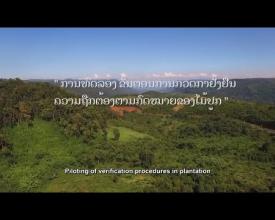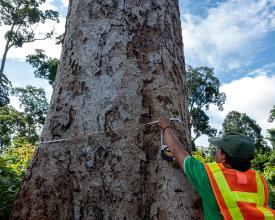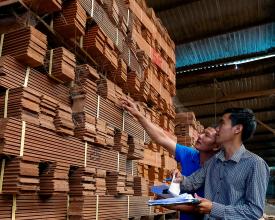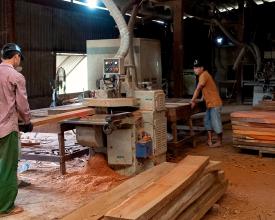
Forest Law Enforcement, Governance and Trade Process promotes the sustainable development of the wood-processing sector in Laos
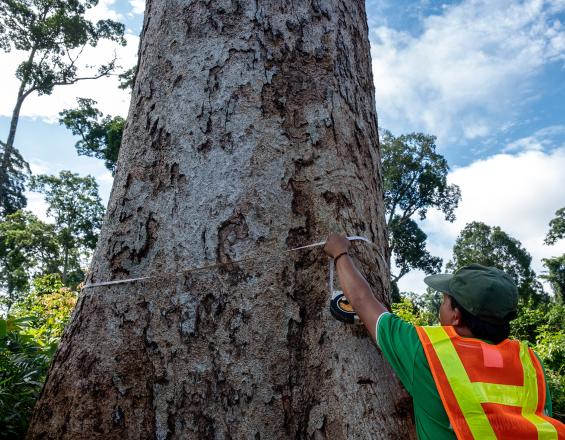
In 2012, Laos submitted a letter of intention to the EU expressing its interest to become involved in the Forest Law Enforcement, Governance and Trade (FLEGT) process. Negotiations for a FLEGT Voluntary Partnership Agreement (VPA), a bilateral trade agreement that sets out the legal obligations to combat illegal logging and establish a timber legality assurance system (TLAS), commenced in 2015. The VPA is developed in a multi-stakeholder process, involving government, private sector and Civil Society Organizations.
The involvement of private sector actors ensures that their perspectives and experiences are considered, which promotes readiness to comply with TLAS once the VPA is implemented. Furthermore, it guarantees that the Lao forestry and wood processing sectors benefit from the VPA in various ways, including sustainable development and economic benefits. Laos’ engagement in the FLEGT VPA-process shows a strong commitment to sustainable forest management and reform processes fostering good forest governance.
Impacts
- Advocacy for private sector interests during the establishment of timber legality requirements is leveraged through participation of the Timber and Wood Processing Associations and the Lao National Chamber of Industry and Commerce (LNCCI).
- Once the TLAS with FLEGT licensed timber products is in place, enterprises will benefit from improved access to export markets. This prospect promotes the Lao wood processing sector to re-think and establish product and production standards.
- As part of the ongoing revision of the legal framework, the Lao Ministry of Industry and Commerce has issued a Decision that requires operators in wood processing and trade to establish monitoring of timber input and output via an internal management system. This will ensure that no illegally harvested timber enters the supply chains in their factories, while at the same time improving efficiency and sustainability of production lines and future competitiveness of the industry.
- Private sector actors provided important inputs to the legality requirements for plantation timber to ensure traceability along the supply chain, considering viable solutions for operators of different sizes, incl. smallholder plantations.
- Lao TLAS improves labor conditions in the forestry and wood processing sectors so that Lao regulations on operational health and safety become integral criteria for timber legality.
